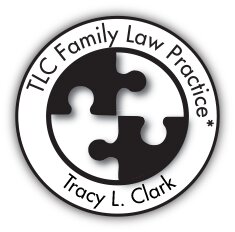Best Collaborative Law Lawyers in Prince George
Share your needs with us, get contacted by law firms.
Free. Takes 2 min.
Free Guide to Hiring a Family Lawyer
List of the best lawyers in Prince George, Canada
About Collaborative Law in Prince George, Canada
Collaborative Law is a form of alternative dispute resolution primarily used in family law cases. It allows parties to negotiate their disputes outside the courtroom with the help of trained professionals, including lawyers, financial advisors, and mental health professionals. In Prince George, Canada, Collaborative Law represents a growing approach for resolving conflicts related to divorce, separation, child custody, and other family matters without the adversarial process of traditional litigation. This method emphasizes cooperation, open communication, and mutually beneficial solutions, helping families avoid the stress and emotional toll of court battles.
Why You May Need a Lawyer
Engaging a lawyer skilled in Collaborative Law can be crucial in a number of situations. When facing a divorce or separation, managing child custody arrangements, balancing financial interests, or seeking fair distribution of assets, a Collaboratively-trained lawyer offers guidance tailored to maintaining respect and open dialogue. Additionally, if you desire to protect family relationships from further conflict and wish to reach an amicable settlement that considers the best interests of all involved, legal assistance is vital. A lawyer can also help ensure that agreements are legally binding and enforceable.
Local Laws Overview
In Prince George, and broadly in British Columbia, Collaborative Law is governed by the Family Law Act, which provides a framework for resolving family disputes outside of court. Key aspects include the emphasis on the best interests of children in custody and access arrangements, equitable division of family property, and the requirement for full financial disclosure. The process is voluntary, meaning all parties must agree to collaborate and avoid court intervention. If the collaborative process does not work, the parties must hire new legal representatives to go to court, which underscores the commitment to settling matters collaboratively.
Frequently Asked Questions
What is Collaborative Law?
Collaborative Law is a legal process where parties resolve disputes with the help of collaboratively-trained lawyers and other professionals, without going to court.
How does Collaborative Law differ from mediation?
While both are out-of-court processes, mediation involves a neutral mediator facilitating discussions, whereas Collaborative Law involves negotiation directly between parties with their lawyers and other professionals committed to settlement.
Is Collaborative Law suitable for all family law issues?
Collaborative Law is suited for many family law issues, particularly where parties are willing to work together respectfully and want to maintain control over the outcome.
What happens if collaborative negotiations fail?
If negotiations fail, parties typically must seek new legal representation before proceeding to court, as collaborative lawyers are committed solely to negotiation and settlement.
Are there additional professionals involved in the process?
Yes, the collaborative process may involve mental health professionals, child specialists, and financial advisors to support a holistic resolution.
Is Collaborative Law confidential?
Yes, discussions in the collaborative process are confidential and cannot be used in court if the process fails.
How long does the collaborative process take?
The timeline varies based on the complexity of the issues and the parties' willingness to cooperate, but it generally concludes quicker than court proceedings.
What costs are involved in Collaborative Law?
Costs vary depending on the professionals involved and the time required but are often less than prolonged litigation due to the streamlined nature of the process.
Can I switch to Collaborative Law if my case is already in court?
Yes, you can opt to switch to a collaborative process if all parties agree, even if the case has already begun in court.
What skills should I look for in a Collaborative Lawyer?
Seek a lawyer who is collaboratively trained, experienced in family law, and possesses strong negotiation and communication skills.
Additional Resources
For those seeking more information, the Collaborative Divorce BC website provides resources and a directory of trained professionals. The Legal Services Society of British Columbia often offers free or low-cost legal help for eligible residents. Local family law support services in Prince George also serve as a point of contact for guidance and referrals.
Next Steps
If you need legal assistance in Collaborative Law, the first step is to consult with a collaboratively-trained lawyer in Prince George. Prepare a list of issues you want to address and any documents related to your case, such as financial records or parenting plans. Engage in initial consultations to find a lawyer who aligns with your goals and offers the expertise you seek. Remember, initiating a dialogue early can often result in more amicable and beneficial outcomes for all parties involved.
Lawzana helps you find the best lawyers and law firms in Prince George through a curated and pre-screened list of qualified legal professionals. Our platform offers rankings and detailed profiles of attorneys and law firms, allowing you to compare based on practice areas, including Collaborative Law, experience, and client feedback.
Each profile includes a description of the firm's areas of practice, client reviews, team members and partners, year of establishment, spoken languages, office locations, contact information, social media presence, and any published articles or resources. Most firms on our platform speak English and are experienced in both local and international legal matters.
Get a quote from top-rated law firms in Prince George, Canada — quickly, securely, and without unnecessary hassle.
Disclaimer:
The information provided on this page is for general informational purposes only and does not constitute legal advice. While we strive to ensure the accuracy and relevance of the content, legal information may change over time, and interpretations of the law can vary. You should always consult with a qualified legal professional for advice specific to your situation.
We disclaim all liability for actions taken or not taken based on the content of this page. If you believe any information is incorrect or outdated, please contact us, and we will review and update it where appropriate.









